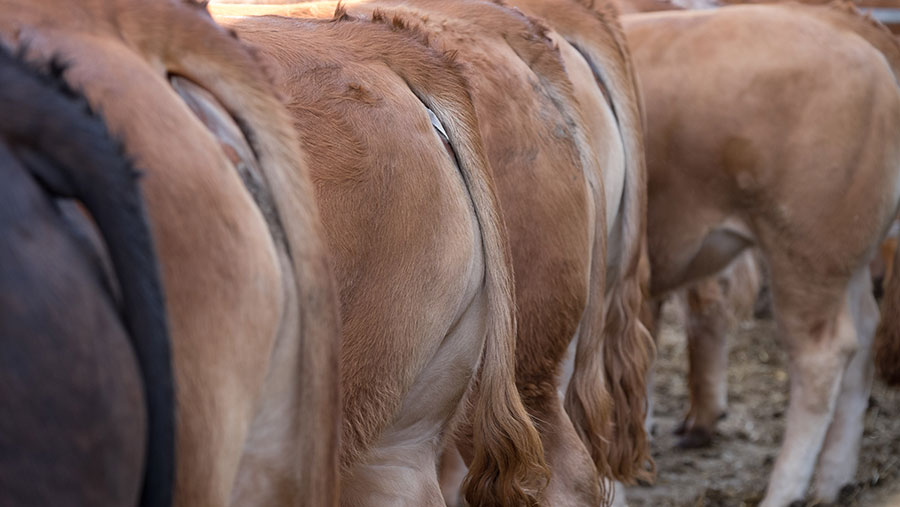Limousin Society withdraws 15 Jacot progeny
 © Tim Scrivener
© Tim Scrivener A Lincolnshire Limousin herd has had 15 animals withdrawn from the breed herdbook owing to government concerns over a batch of imported French semen.
Use of the 15 Mereside animals – which are all first-generation progeny of Jacot 36-94-005-555 – for pedigree breeding should “cease with immediate effect”, said a British Limousin Cattle Society (BLCS) statement on Tuesday (11 January).
The BLCS said it is seeking urgent clarification from Defra on the matter. Use of semen, embryos and oocytes from the 15 animals should all cease.
See also: Limousin Society suspends breeder amid semen import inquiry
Former Cogent bull Mereside Lorenzo, which has 948 progeny registered on the Taurus database on more than 200 holdings, is among the withdrawn animals.
Cogent confirmed that Lorenzo was fully parent- and pedigree-verified before entering the stud.
The other animals are Ladybird, Lawbreaker, Leahmarie, Legolas, Lionheart, Lisamarie, Longbow, Lucinda, Lynmarie, Olily, Ophelie, Orangina, Outlaw and Ozark.
Knock-on effects
The BLCS said its understanding was that that all existing progeny and descendants from the 15 animals will be unaffected and will remain in the herdbook, subject to meeting standard breed requirements.
But progeny from the 15 animals born on or after 22 December 2021 cannot be registered, although they can be birth-notified as normal.
Imported Jacot semen was at the centre of a Trading Standards investigation in July 2020 when sources told Farmers Weekly that it had entered the UK without the necessary health certification.
A BLCS spokesman said: “The council of management understands that this is extremely concerning for many members and is working hard in the best interests of all members.
“The society is seeking clarity on the wider situation and all members will be kept informed.”
Breeders affected by the announcement should contact the society to discuss the matter, the statement said.
Farmers Weekly contacted the Mereside herd, but has yet to receive a response.
What is the law for semen importation?
Semen importation between EU member states is governed by Council Directive 88/407.
- Animals must pass extensive health and disease testing before semen can be collected and certified to cross member state borders.
- Semen must also be collected and processed in an approved semen collection centre, as identified by a veterinary registration number. Centres are inspected every six months.
- Semen straws are identified with a specific number that must correspond to health documents, and the process is managed on the online portal Trace Control Expert System (Traces)
